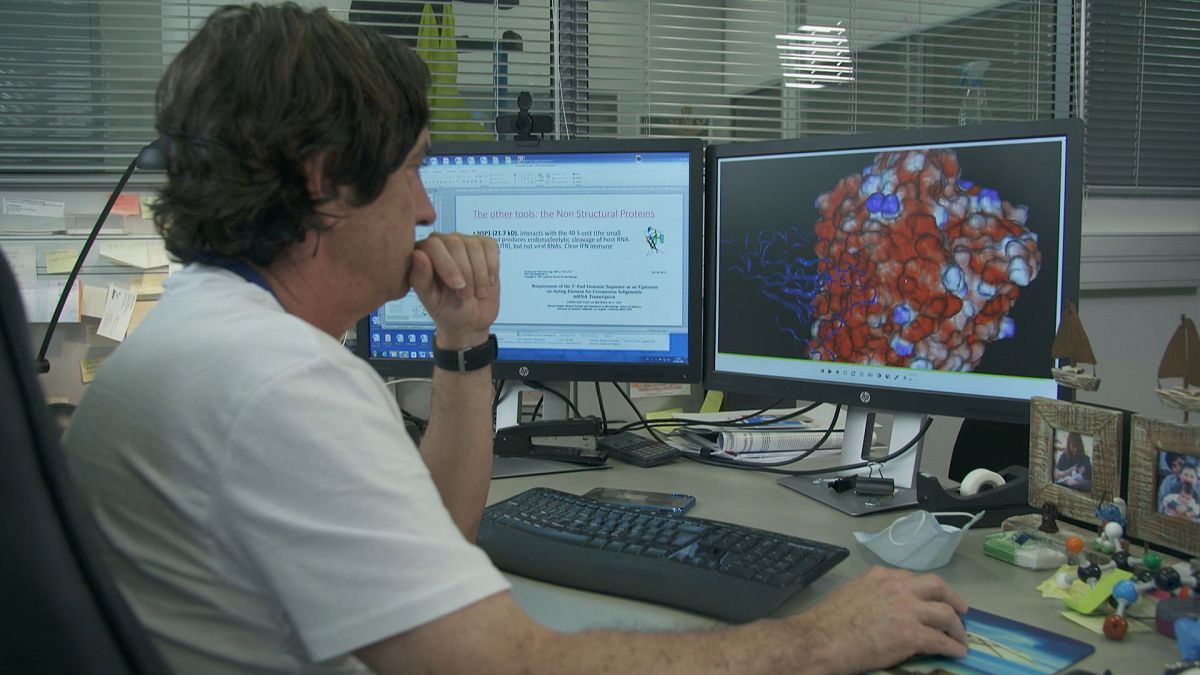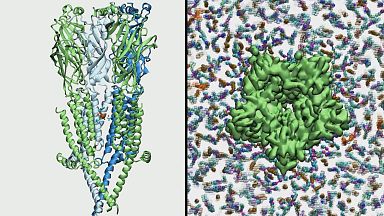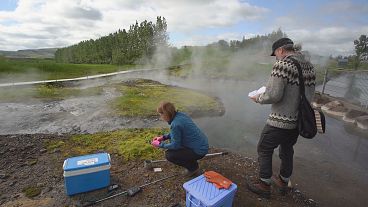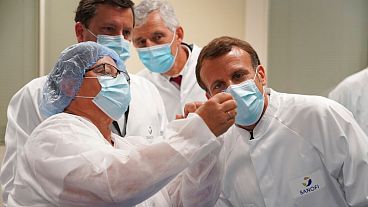In this week's episode of Futuris, Euronews finds out how supercomputers are supporting researchers looking for coronavirus treatments.
In this week's Futuris, Euronews finds out how biomolecular simulation, a combination of biology and computer science, is helping to better understand diseases like Covid-19.
Finding a vaccine
Like many other research institutes across Europe, one that Euronews visited in Barcelona is busy finding the weak points of SARSCoV-2 - the virus that causes Covid-19 - to develop efficient treatments or a vaccine.
However, molecular biologists there are dealing with a wide array of unknown challenges, as Modesto Orozco from the Institute for Research explained.
"How do we think the virus is going to keep evolving? How important is its infectiousness in animal species close to us going to be? To what extent can one of those species turn to a long-term (virus) reservoir? How can we find, or help to find, new drugs that tackle Covid-19? How can we contribute to develop more efficient vaccines?," he asked.
Supercomputer assistance
Given the volume and complexity of the questions, researchers have turned to a supercomputer called MareNostrum. Its fourth version can perform eleven thousand trillion operations per second.
The High Performance Computer has already helped hundreds of researchers working in different areas - on subjects like climate change and gravitational waves.
It is also now helping to support research into SARS-CoV-2.
The Centre of Excellence of Computational Biomolecular Research is where computer science, biology and biophysics teams are working together to come up with a breakthrough.
Integrative modelling and molecular simulations are already being used in Stockholm, looking at the properties of different viruses in several infectious diseases, as Erik Lindahl, a professor of biophysics explained.
"We could not do what we do without computers. The computers enable us to see things that we could never see in experiments otherwise. They enable us to see for instance how liquids diffuse around the proteins. This is not a structure. They (liquids) move all the time. And no other experimental method will be able to see that," he said.
Scalable software
A key aspect is accessibility, thus the effort to develop widely used and scalable software tools that can deliver accurate answers to researchers quickly.
"Scientific computing is a very difficult area. Scientists need to design complex algorithms to express the science in terms that computers can actually compute and give you answers to. So we need to design complex algorithms, which makes the software applications powerful but very complex. So, a big challenge is to make those powerful applications very user-friendly," Rossen Apostolov, a researcher in computational biophysics explained.
Scientists, including Erik Lindahl, professor of biophysics, believe it will not be long until supercomputers can design treatments or even a vaccine.
"Give this five or ten years, and I think in the future computers are going to be the main driving force to identify new drugs when we need to find them in weeks or months’ notice. We are not quite there yet but the work that´ is happening all over Europe is rapidly contributing to it," he added.





